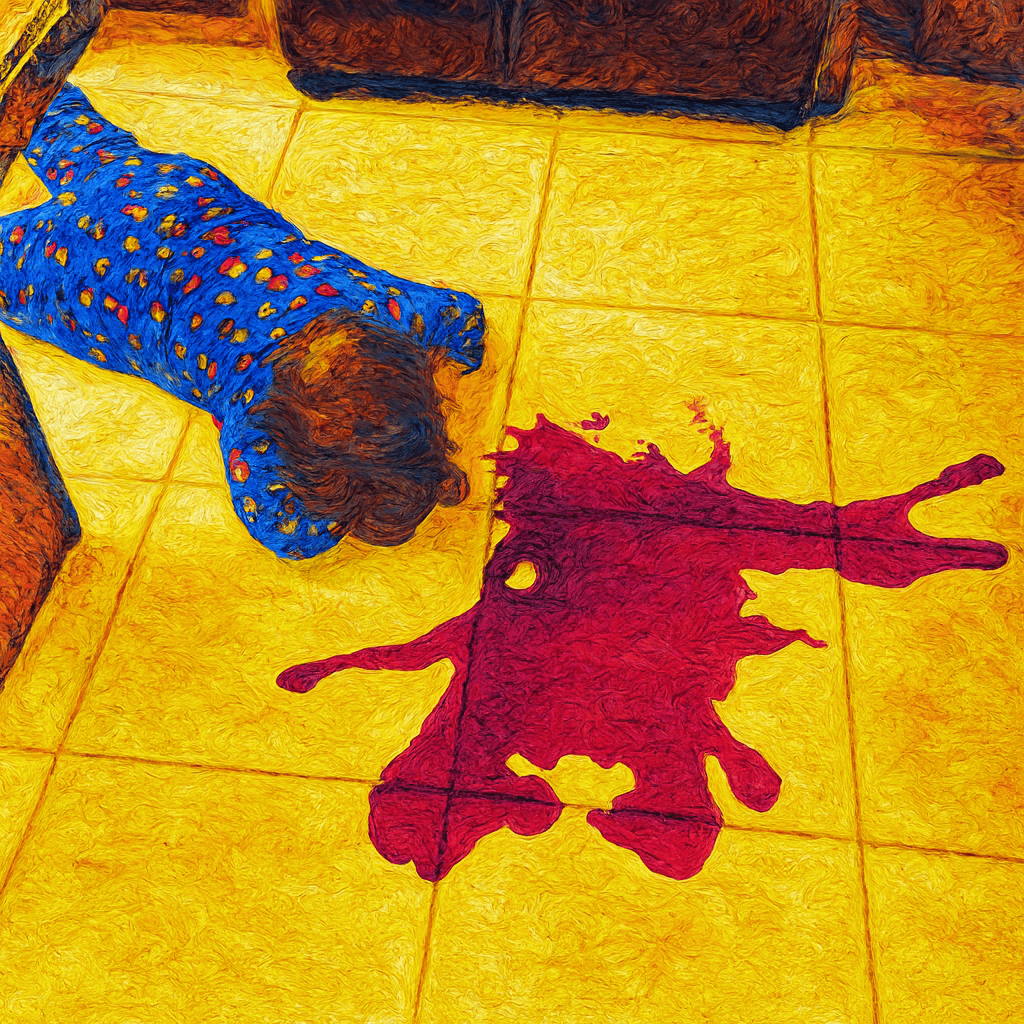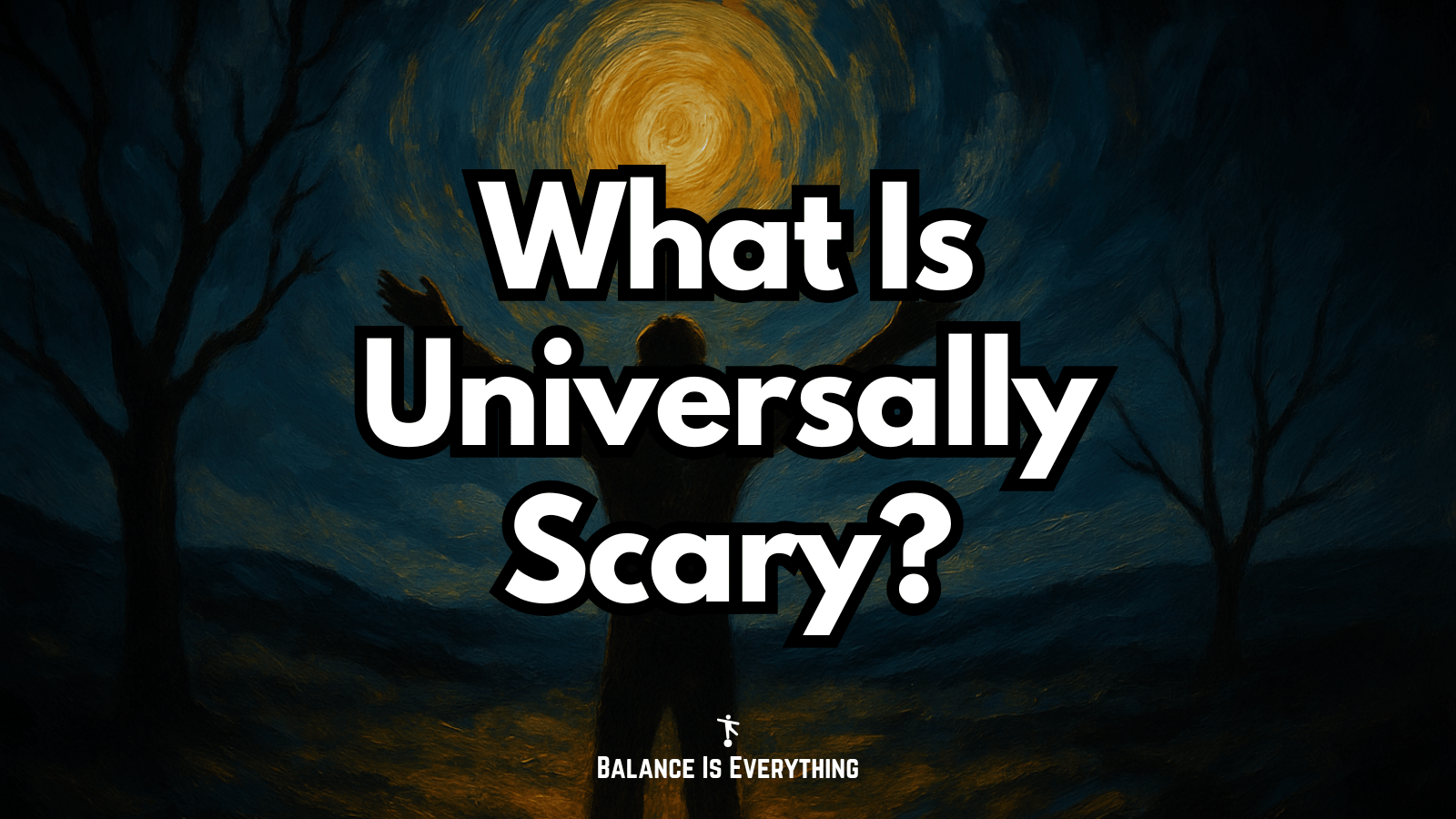I was contemplating the scariest thing about being alive, not for me, but for everyone. It’s easy to imagine scary things that could kill you, like facing down a bear or being buried alive. Those are both scary. But what about just being alive from five minutes ago to now?
Life’s Symbols
We agree to believe in symbols. The letter a is a letter a, and 1 is the loneliest number. But it’s all made up. It looks nice, but it’s not real. Symbols are pointers to ideas, not reality. The almighty dollar isn’t mighty if you’re in the desert. A tall glass of water will always beat symbols.
So What Is Really Scary?
I don’t hold readers hostage.
We control nothing; control is an illusion.
I’m unsure of what I’ll do next. It happens with or without me. It may seem that way, but events happen. What caused me to write this? I don’t know. One minute I’m discussing what’s truly scary with my wife, and the next day I’m writing about it.
For many people, contemplating randomness is a frightening prospect. Control is their identity, or so they believe. They cling to it like a warm blanket, thinking they’ll freeze without it.
What’s True Freedom?
Knowing you mustn’t control. Watching your life happen while tapping yourself like a cat does a toy. Enjoying every moment as it unfolds. Meditating on the end of your life as the beginning.
Life is short, and that’s OK.
The Universal Fears That Haunt Us All
Death terrifies everyone. Not the process of dying, but the idea of non-existence. The thought that one day, everything you’ve experienced, every memory, every relationship, will all vanish into nothingness. That’s a universal fear for many.
But other universal fears cut deeper than death:
- The unknown - What happens next? We can’t know, and that uncertainty drives us mad.
- Isolation - Being completely alone, abandoned by everyone and everything.
- Loss of identity - Who are you if you’re not who you think you are?
- The passage of time - Watching everything you love decay and disappear.
These fears unite every human across every culture. A mother in Tokyo fears losing her child the same way a father in New York does. The symbols change, but the terror remains identical.
Why We Cling to the Illusion
Control feels like safety. It’s the warm blanket we wrap around ourselves when the world feels chaotic and unpredictable. We create elaborate systems of belief, schedules, and plans to convince ourselves we’re steering the ship.
But here’s the thing, control is an addiction. The more you try to control, the more you need to control. It becomes your identity. You start believing that without your plans and systems, everything will fall apart.
I see this everywhere. People who can’t function without their daily routines. Parents who micromanage their children’s lives. Leaders who create rigid hierarchies because they can’t handle uncertainty.
The irony? The more you try to control, the more out of control you feel. It’s like trying to hold water in your hands; the tighter you squeeze, the more it slips through your fingers.
The Paradox of Awareness
Here’s where it gets interesting. Realizing you control nothing can be absolutely terrifying. It can feel like free-falling through an endless void with no safety net.
However, it can also be one of the most liberating experiences you’ll ever have.
When you stop trying to control everything, you start noticing what’s actually happening. You see the beauty in random moments. You appreciate the people in your life because you know they could be gone tomorrow. You stop fighting reality and start dancing with it.
The paradox is this: by giving up control, you gain more agency than you ever had before. You become responsive instead of reactive. You start making choices from a place of clarity instead of fear.
How to Live With This Awareness
This isn’t about becoming passive or resigned. It’s about learning to surf the waves of life, rather than trying to control the ocean.
Here’s what I’ve learned:
- Watch your thoughts - Notice when you’re trying to control something that can’t be controlled.
- Embrace uncertainty - Instead of fighting it, get curious about what might happen next.
- Focus on what you can influence - Your actions, your responses, your choices in this moment.
- Practice gratitude - When you realize everything is temporary, you start appreciating what you have right now.
The goal isn’t to become a Zen master who never feels anything. It’s to become someone who can feel fear without being consumed by it.
Moments of Clarity
When I was young, I had fits of anger whenever I felt out of control. This destructive pattern followed me across continents and persisted well into my late twenties.
I remember one particular incident in my European apartment. I was cleaning my bathroom, nearly finished with the task, when I decided to go the extra mile. The mirrored cabinet looked dusty and scuffed, so I removed everything from it, took down the cabinet, and cleaned it thoroughly. Everything went smoothly until I tried to hang it back up.
By this point, sweat was stinging my eyes, and I was ready to be done. The cabinet was substantial, three feet tall by two feet wide, and setting it on the hook proved more challenging than expected. As my frustration mounted, that angry young man inside me erupted. I punched the mirror as hard as I could, which of course caused my hand to bleed and my temper to flare even higher.
But then something remarkable happened. I had a moment of clarity. I took a deep breath, calmed myself down, and returned to the task. As I lifted the cabinet again, I realized I could easily see the hook. If I had opened the cabinet door from the beginning, I would have saved myself pain and embarrassment. In that moment, I understood that I had been trying to control too much instead of letting events unfold naturally.
That experience became a turning point for me and continues to serve as a wellspring of peace.
Years later, I found myself spending hours creating fresh beet juice for my family. Near the end of the process, I accidentally dropped the pitcher, sending dark red juice splashing across the floor. I felt that familiar pang of anger rising, but this time I caught myself. Instead of giving in to frustration, I had a different idea. I asked my daughter to lie down near the spilled juice and pretend she was dead. We all burst into laughter, transforming what could have been a moment of anger into a shared joke.

These moments taught me something profound: life is meant to be lived peacefully while having fun, knowing we have no control over what happens next.
